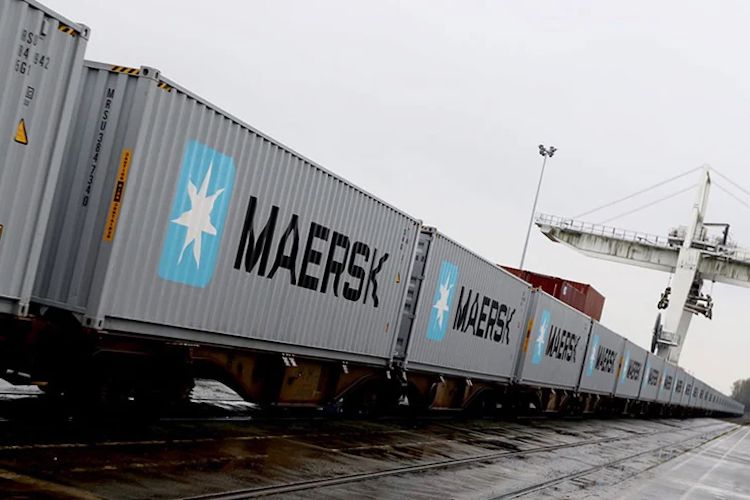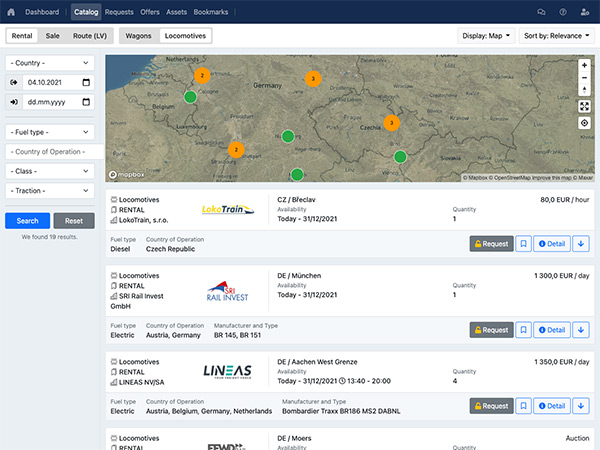In a significant step towards decarbonizing the logistics sector, Maersk, in collaboration with Renfe and Cepsa, will embark on a test of second-generation biofuels in the Spanish rail sector. This pioneering project aims to transform the Algeciras-Madrid corridor into a decarbonized route, providing customers with sustainable transport options.
The three-month pilot, which is due to start in early July, will use renewable diesel on the non-electrified section between Algeciras and Cordoba. The renewable diesel, supplied by Spanish company Cepsa, will be produced from used cooking oils at its La Rábida Energy Park in Huelva. This alternative fuel will replace conventional diesel in the Renfe locomotives used by Maersk to transport goods. From Cordoba to Madrid, the route will continue with electric trains powered by renewable energy.
“Second-generation biofuels can be used in locomotives without engine modifications and offer a significant reduction in GHG emissions compared to conventional fuels. In the entire life cycle from production to use these emissions can be reduced by up to 90% compared to traditional fuels. In addition, these bio-fuels promote the circular economy by using waste for their production that would otherwise be discarded or end up in landfills,” explained Carlos Giner, Chief Commercial Officer of Cepsa's Commercial & Clean Energies.
By implementing renewable fuels, the project aims to cover nearly 40,000 kilometers and reduce greenhouse gas emissions by more than 600 tons. The technical, environmental, and economic data collected during the pilot test will be instrumental in analyzing the viability of low GHG emission fuels as a substitute for conventional diesel in rail transport on non-electrified lines. The ultimate goal is to offer sustainable solutions to Maersk's customers and contribute to a greener future for the industry.
“As the process of electrification of the rail network progresses, it is key for Renfe Mercancías to explore possible alternatives to the use of fossil fuels in trains running on non-electrified lines, which currently represent approximately 35% of Spanish railways. In this way, we will not only contribute to the overall goal of reducing emissions in the transportation sector, but also give our diesel locomotives a second life, thanks to the development of new green fuels,” said Joaquín del Moral General manager of Renfe Mercancías.

